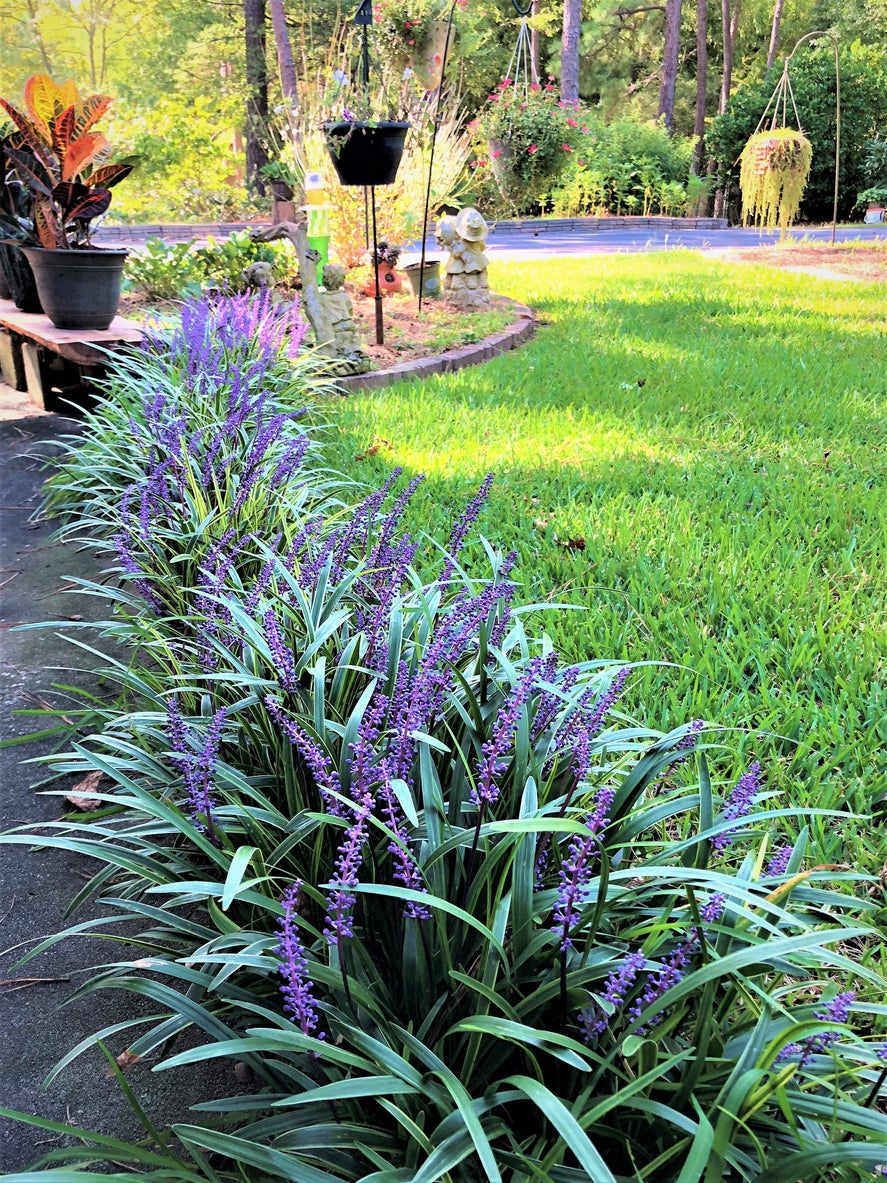Monkey grass, a popular choice among gardeners, is a low-maintenance, hardy plant that can add a touch of green to any landscape. Its dense, grass-like foliage creates a lush, carpet-like effect, making it ideal for groundcover, edging, or even as a standalone plant.
Monkey grass, scientifically known as Ophiopogon japonicus, is a perennial plant native to East Asia. It is often confused with true grass due to its appearance, but it’s actually a member of the lily family. Its name is derived from its long, slender leaves that resemble monkey tails.

There are several varieties of monkey grass, each with its unique characteristics:
Dwarf Monkey Grass
This compact variety grows only a few inches tall, making it perfect for small spaces or rock gardens.
Black Mondo Grass
This striking variety features deep purple-black foliage, adding a dramatic touch to any landscape.
Variegated Monkey Grass
This variety boasts green leaves with white or yellow stripes, providing a visually appealing contrast.

Monkey grass offers numerous benefits for your garden:
Low Maintenance
Once established, monkey grass requires minimal care. It is drought-tolerant and can thrive in various soil conditions.
Versatile
Monkey grass can be used in a variety of ways, including groundcover, edging, borders, and container gardens.
Pest and Disease Resistant
Monkey grass is generally resistant to pests and diseases, making it a low-maintenance choice.
Erosion Control
Its dense root system helps prevent soil erosion, making it ideal for slopes and embankments.
Year-Round Interest
:max_bytes(150000):strip_icc()/mondo-grass-gettyimages-121744191-2000-098f9f29714d48fd9764fe4aa7a3d1bf.jpg)
Monkey grass retains its green color throughout the year, providing year-round interest in your garden.
Planting monkey grass is relatively simple:
1. Choose a suitable location: Select a location with partial shade to full sun.
2. Prepare the soil: Ensure the soil is well-draining.
3. Plant the grass: Dig a hole and plant the grass, spacing the plants 6-12 inches apart.
4. Water regularly: Water the newly planted grass regularly until it is established.
5. Mulch: Apply a layer of mulch to help retain moisture and suppress weeds.
Watering: Water deeply and infrequently, allowing the soil to dry out slightly between waterings.
Monkey grass is a versatile and low-maintenance plant that can enhance the beauty of any garden. Its attractive foliage, hardiness, and ease of care make it a popular choice among gardeners. By following these simple planting and care tips, you can enjoy the beauty of monkey grass for years to come.
1. Can monkey grass grow in full shade?
While monkey grass can tolerate some shade, it thrives best in partial shade to full sun.
2. Is monkey grass toxic to pets?
Monkey grass is generally considered non-toxic to pets. However, it’s always best to consult with a veterinarian if you have concerns.
3. How often should I water monkey grass?
Water monkey grass deeply and infrequently, allowing the soil to dry out slightly between waterings.
4. Can I grow monkey grass in pots?
Yes, monkey grass can be grown in pots. Choose a pot with drainage holes and use a well-draining potting mix.
5. When is the best time to plant monkey grass?
The best time to plant monkey grass is in the spring or fall.



:strip_icc()/september-charm-japanese-anemone-273ca0fb-3511682d129e4f62833c2c183c2b1dd5.jpg?w=200&resize=200,112&ssl=1)
:max_bytes(150000):strip_icc()/alocasia-dragon-scale-2-2cd4495e57da49ea956b65db63656881.jpg?w=200&resize=200,112&ssl=1)


:max_bytes(150000):strip_icc()/GettyImages-1174305372-718fb182f53b4714bd0789d8a312d66f.jpg?w=200&resize=200,112&ssl=1)